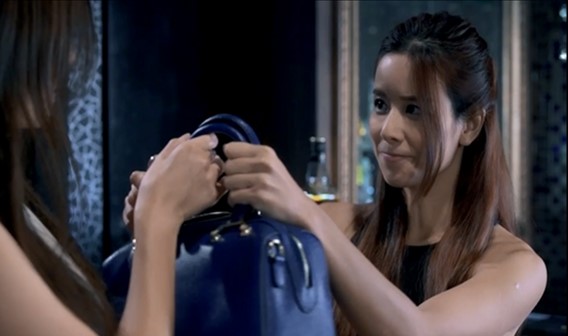Connivance with Substandard Works

An engineering company was awarded a contract to carry out waterproofing works to all bathroom floors of a newly constructed building, which was supervised by a clerk of works employed by an architectural firm. In a water ponding test, the clerk of works discovered signs of water seepage at the ceiling of the lower floor, reflecting substandard waterproofing works. To get substandard works accepted and certified, the proprietor of the engineering company paid a sum of money to and settled the entertainment expenses incurred by the clerk of works.
Substitution of Test Samples

A foreman of a road maintenance contractor, under the supervision of a consultant’s works supervisor, was tasked to obtain samples of bituminous material cores from a road resurfacing site and deliver the samples to the laboratory for testing. Investigation revealed that the foreman had fabricated a number of test samples, which were used to replace any substandard ones obtained on site. The malpractice was discovered by the works supervisor during his routine inspections. The foreman gave a gift cheque of a few thousand dollars wrapped in an envelope to the works supervisor as a reward for the latter’s conniving at the malpractice.
Special Treatment

A law enforcement officer visited a restaurant shortly after its opening. The officer told the restaurant shareholders that he could regularly visit the restaurant, but that required monthly “travelling expenses”(「車馬費」). Believing that the officer would protect the restaurant from triads, the shareholders agreed to pay.
Customary Gifts

While having dealings with a government department, the proprietor of a company offered boxes of mooncakes to an officer of the department a few days before the Mid-Autumn Festival. Despite the officer’s refusal to accept, he insisted and left the mooncakes behind. A senior officer of the department referred the case to the ICAC and returned the mooncakes to the proprietor.
Solicitation of Rebate

A manager of a supermarket chain was responsible for overseeing the operation of some 20 stores of the group. At a liaison dinner with food suppliers, he met a director of a company supplying roast meat.
Knowing that the company director was eager to do business with the supermarket, the manager offered to help him obtain a concessionaire contract for roast meat at one of the supermarket stores, provided that the director would rebate him 5% of the sales generated from the stall. The director agreed. Later, the supermarket manager also assisted the roast meat company in obtaining concessionaire contracts for stalls at other stores.
The manager accepted over $50,000 from the company director over a six-month period.
Knowing that the company director was eager to do business with the supermarket, the manager offered to help him obtain a concessionaire contract for roast meat at one of the supermarket stores, provided that the director would rebate him 5% of the sales generated from the stall. The director agreed. Later, the supermarket manager also assisted the roast meat company in obtaining concessionaire contracts for stalls at other stores.
The manager accepted over $50,000 from the company director over a six-month period.
Offer of Commission

A luxury goods retail company earns its large portion of income from group tourists. Facing increasingly fierce competition, the Chairman of the company offered commissions to tour guides employed by various travel agencies to induce them to bring the group tourists to patronise his company’s showrooms. To conceal his act, the Chairman channeled the company’s money to another company set up by himself, and distributed the commissions, amounting to millions over several years, through the latter.
The travel agencies concerned did not know that their employees had been receiving commissions from the retail company, nor did they permit employees from receiving commissions from merchants. In defending himself during prosecution, the Chairman of the company claimed that offering commission to secure referral of clients was a norm in the industry.
The travel agencies concerned did not know that their employees had been receiving commissions from the retail company, nor did they permit employees from receiving commissions from merchants. In defending himself during prosecution, the Chairman of the company claimed that offering commission to secure referral of clients was a norm in the industry.


